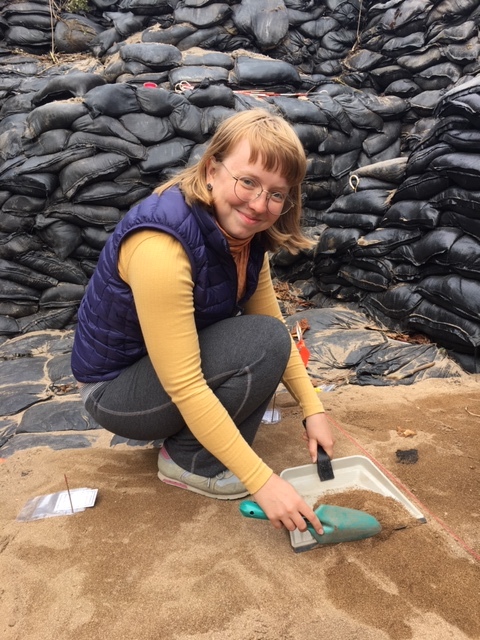Experience in Long-term
Mariia Kuznetsova
Home University: Irkutsk State University
Graduate school: Graduate School of Letter
Course・Year: Master Course 1
Period of time: 4 August 2019 ~ 9 February 2020
Host University: Hokkaido University
FY2019 Basic Subjects
Memories about Excavation Experience on Rebun Island
As part of the RJE3 program, I, Mariia Kuznetsova from Irkutsk State University from Russia, managed to take part in archaeological excavations on the island of Rebun. Excavations took place from August 5 to 24, 2019, students and scientists from all over the world took part in them: from the USA, Canada, China, Taiwan, Finland, Great Britain, Italy, Russia and, of course, Japan. Work in such a team brought me amazing experience, the exchange of knowledge and methods of archaeological excavations. The excavations were organized by Professor Kato Hirofumi and Yu Hirasawa, who coped well with all organizational issues and managed to make these 3 weeks the most eventful and effective for us.
Excavations were carried out at the site of Hamanaka-2. This is a multi-layered monument, divided into 9 cultural layers. The earliest belongs to the Jomon culture. I was lucky to work on a layer of Jomon culture and Okhotsk culture. For me, this was the first experience in excavating ceramic vessels. It was extremely interesting to determine which part of the vessel I found, study the ornament, and consult with specialists. In addition to ceramics, stone tools and animal bones were widely represented in both layers. On a layer of Jomon culture, I dug up a square, on the site of which, apparently, obsidian tools were made, since I found a large number of obsidian chips. Interestingly, there are no natural deposits of obsidian on Rebun, which means that obsidian was brought here from outside.
In addition to working at the excavation site, we were able to participate in ethnographic surveys of the local population. As part of an ethnographic school, we, under the guidance of assistant professor Kondo Shiaki, interviewed well-known residents about their traditions, the history of their families, and beliefs. An interesting experience was communication with fishermen who showed us their catch and the devices with which they fish.We also worked in the laboratory, processing artifacts excavated at the excavation site.
In general, we can say that it was an amazing experience, given to me through participation in the RJE3 program. I am very grateful for such an opportunity.

